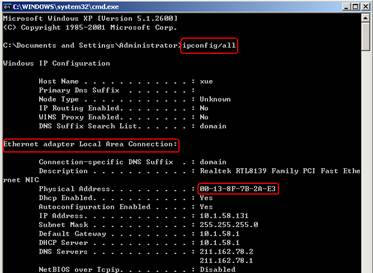
For most home applications this shouldn’t be an issue, and a consumer grade VPN compatible router should be just fine. If you have a lot of devices connecting to your WiFi at once, your router will need more processing power in order to keep up with the constant encryption and decryption for the VPN. The type of router that is compatible with a VPN is generally much more expensive, with the most basic models starting at around $50, but can run way higher than that if you want something with a bit more grunt. The basic router you get from your ISP is unlikely to be VPN compatible, nor will you be able to flash it with a firmware that is. The one that will probably put off the most people is the hardware cost. There are indeed some disadvantages of VPN routers. Of course, this particular method is impossible if you’re using a VPN.ĭo remember though, that simply using a VPN is not a failsafe way to become anonymous online, and anyone who tells you it is, is either lying or has believed a lie someone else has told them. In this case, they would start by learning which online services you use so they can create a fraudulent form of contact from that service, with the aim of stealing confidential information. This could be the beginning of a spear phishing attack, Where a hacker uses social engineering to specifically target an individual. Most people will never consider that the services they use could be the first piece of information that an attacker looks for.

This is an often overlooked vulnerability. Whilst most websites and services these days actually do encrypt data between the computer and their servers, not all do, and it’s still possible to discover which services you use, even if the attacker can’t actually see what you’re sending and receiving. It’s clear that encrypting all your internet activity by default will increase the overall security of your network. This set it and forget it method is very good for keeping your home network protected, but I would suggest periodically testing the VPN connection using a tool such as DNSLeakTest, rather than actually forgetting, as VPN connections can go down. What’s more, your ISP will simply see encrypted packets and won’t be able to determine whether you’re torrenting on your laptop, unblocking Netflix on your phone, or gaming online through a console. This means that ALL your internet traffic is encrypted by the VPN and the apparent location of your entire network will be that of the VPN server. With a VPN router you can connect all your WiFi and wired devices to the internet through the VPN, even devices that don’t support a VPN natively. One of the main things I like is the level of control and customization you have over your entire home network when you’re using the higher end firmware of a VPN router. There are several advantages of running a VPN on your router rather than on each device. Recommended guide: Using RAM-only VPN servers for enhanced security
CAN I USE THE SAME ROUTER FOR MAC AND PC HOW TO
Recommended guide: How to stealthy use a VPN Quick navigation: Use this to jump to the section that shows you how to set up a VPN router. You should also use a VPN router if you have a device that you exclusively want to connect to a VPN server alone and never to your regular connection.Ī VPN router is also advantageous when you are using an OS with which most VPN apps are incompatible, such as Tails OS.īelow we will elaborate on how both VPN apps and VPN routers work as well as show you how to set up a VPN router yourself.
CAN I USE THE SAME ROUTER FOR MAC AND PC INSTALL
This way you won’t have to manually install and set up the VPN app on all devices.

Use a VPN router: If you have multiple devices that need a stable and frequently used VPN connection (work computer, office environment with multiple devices, etc.). Related: Check out our best VPNs roundup if you are looking for a VPN.

Use a VPN app: If you only need a VPN connection on one (or just a few) of your devices and only intend use the VPN connection sporadically (such as unblocking streaming sites, for example). You will not have to install an app on any other device. Every device then connected to the VPN router will share the VPN connection. VPN on a router: With a VPN router, you only need a VPN installed on the router itself. If you need more devices connected to a VPN, you will have to install the VPN app on every device. VPN on a device: With a VPN installed on a device, you will only be able to access a VPN connection with that specific device and only when the app is turned on. In this article we will discuss the issue of VPN on a router vs.


 0 kommentar(er)
0 kommentar(er)
